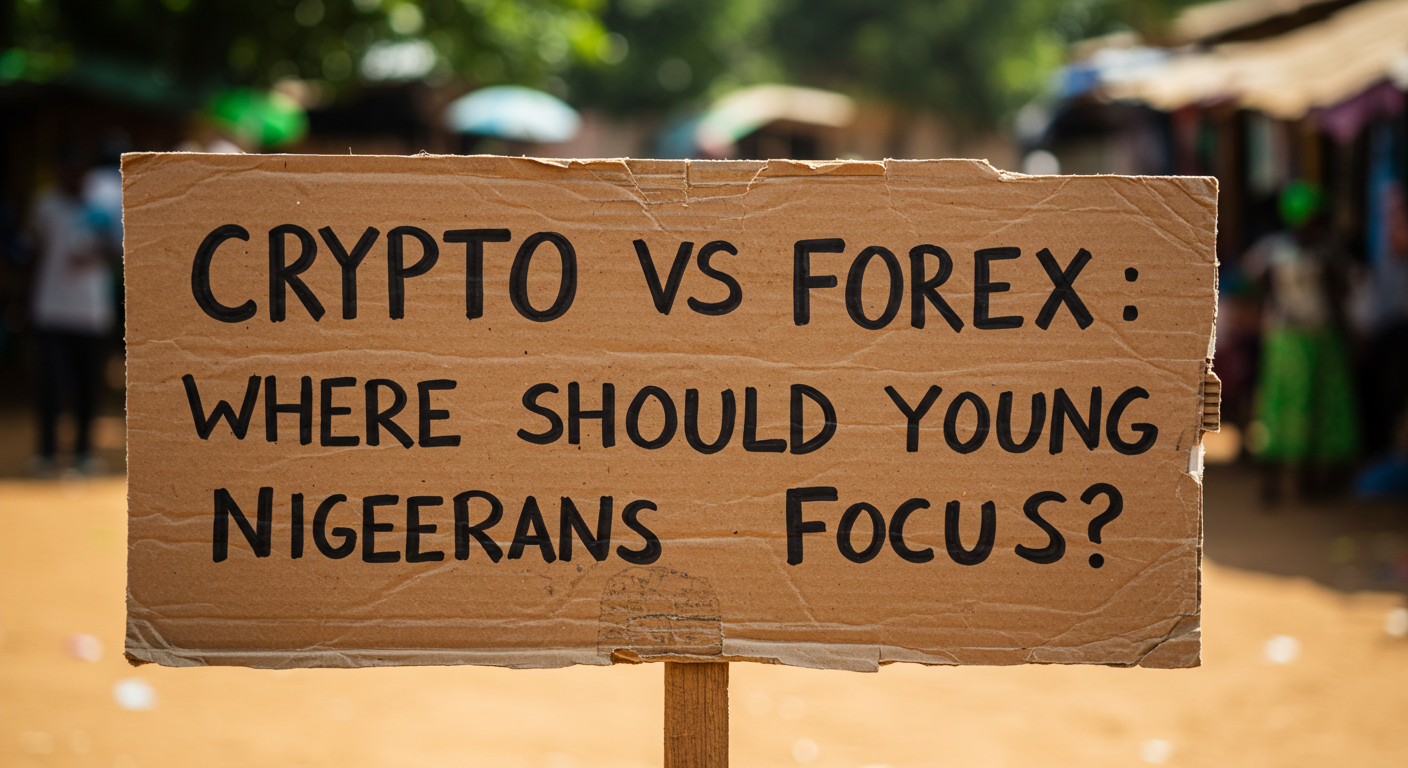
Crypto vs Forex: Where Should Young Nigerians Focus?
- Posted on: May 25, 2025
In today’s digital economy, two major financial opportunities stand out for young Nigerians looking to earn online: Cryptocurrency trading and Forex (foreign exchange) trading. Both markets offer potential for profit, but they differ significantly in how they operate, their risks, accessibility, and long-term opportunities.
With limited job options and inflation reducing the value of the naira, many young people are asking:
Crypto vs Forex — where should I focus my time and energy?
Let’s break down both options and help you make an informed decision.
1. Understanding the Basics
What is Forex?
Forex stands for Foreign Exchange — the global marketplace for trading national currencies. Traders make profits by predicting how currency pairs (like USD/NGN or EUR/USD) will move in value.
What is Crypto?
Cryptocurrency involves trading digital assets like Bitcoin, Ethereum, and USDT. Unlike Forex, crypto trading often happens 24/7 on decentralized or centralized platforms. Crypto is also more than just trading — it's a revolution in finance and technology.
2. Market Accessibility
Forex:
Requires trading platforms like MetaTrader 4 or 5
Often involves brokers, high minimum deposits, and leverage
Not beginner-friendly without solid training
Crypto:
Easy to start with platforms like EootleX, Binance, or Coinbase
No middlemen needed
Users can start with as little as ₦5,000 or less
Can be accessed via P2P, exchanges, or mobile apps
✅ Winner: Crypto – Easier entry point for beginners with small capital
3. Trading Hours
Forex:
Operates 5 days a week, 24 hours a day
Closed on weekends
Crypto:
Open 24/7, including weekends and public holidays
✅ Winner: Crypto – More flexibility, especially for side hustlers or students
4. Volatility and Profit Potential
Forex:
Less volatile
Requires leverage to make significant profits
Leverage increases risk of huge losses
Crypto:
Highly volatile – meaning bigger risk but also bigger rewards
Bitcoin can move $1,000+ in a day
Daily profits possible with the right knowledge and timing
⚠️ Note: High volatility also means you can lose money quickly
✅ Winner: Crypto – More profitable for smart, disciplined traders
5. Education & Community Support
Forex:
Tons of paid courses and mentorship programs
Learning curve is steep, but structured
Crypto:
Active Nigerian communities on Telegram, Twitter (X), and YouTube
Easier to find free resources and learn by doing
✅ Winner: Crypto – Strong youth community support in Nigeria
6. Real-World Use Cases
Forex:
Mostly for profit-making via trading
No real-world utility for the average Nigerian beyond speculation
Crypto:
Used for sending and receiving money, saving in stablecoins, buying NFTs, earning through DeFi, and even launching startups
More than trading — it’s a financial system alternative
✅ Winner: Crypto – Offers income, utility, and business opportunities
7. Regulation and Risk
Forex:
More regulated globally, but some brokers scam users
Nigerian Forex trading is not regulated locally
Crypto:
Still facing regulatory uncertainty in Nigeria (e.g., CBN restrictions)
However, P2P and decentralized exchanges continue to grow
Risk of scams, pump-and-dump coins, and loss of funds if careless
✅ Winner: Tie – Both have risks; research and caution are essential
Where Should Young Nigerians Focus?
Both Forex and Crypto can be profitable. But when we look at accessibility, community, innovation, and long-term potential, Crypto clearly stands out as the smarter option for young Nigerians in 2025.
Here’s why:
You can start small
The market never sleeps
There's real-world utility
You can build or earn beyond just trading
That said, success in either space requires education, discipline, and strategy. If you’re ready to explore crypto, start by learning how wallets, blockchains, and P2P work. Platforms like EootleX offer beginner-friendly tools to help you get started.
🚀 Final tip: Don’t just trade — learn how to use crypto for payments, savings, and even launching your own blockchain project. The future is decentralized, and Africa is rising with it.
